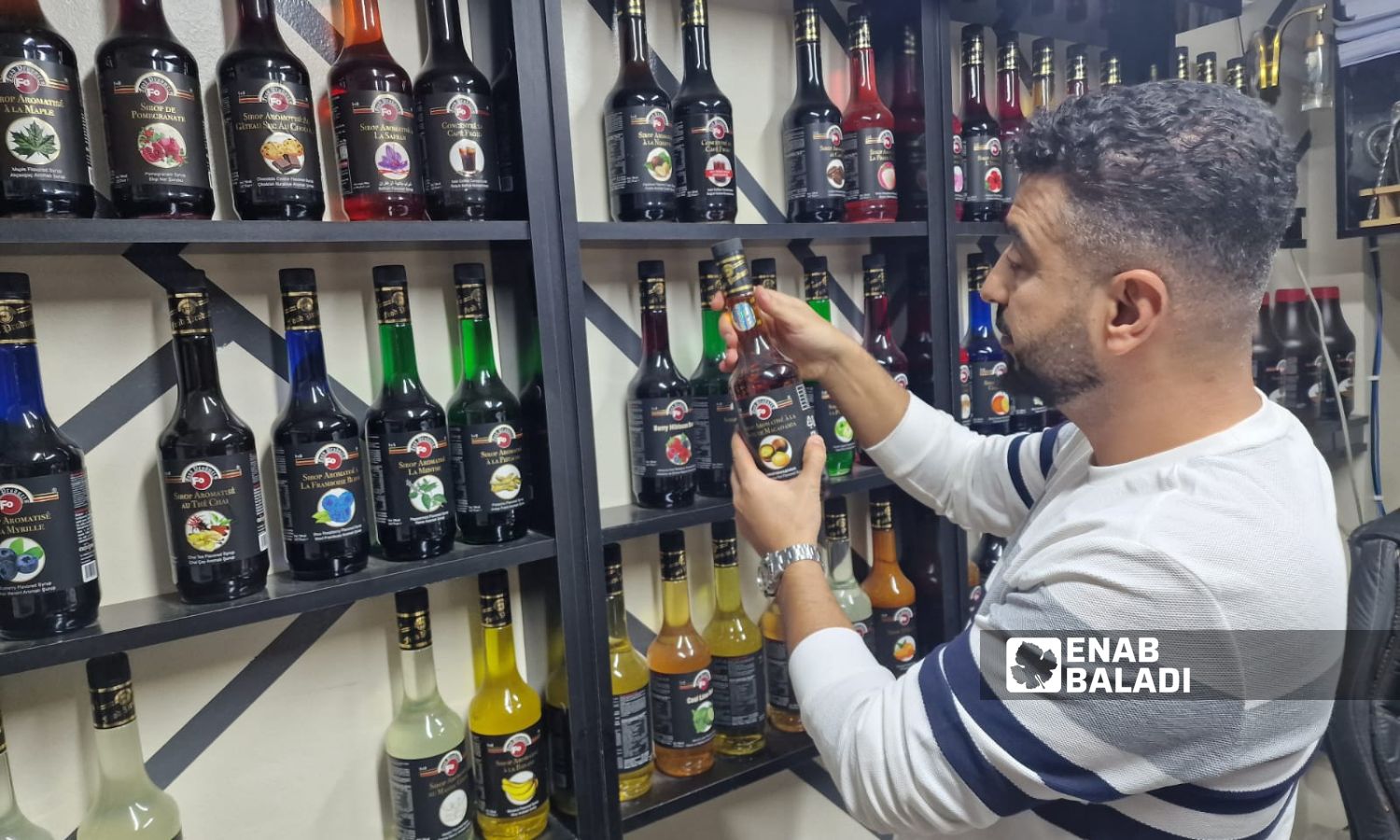



Idlib – Anas al-Khouli
Drinks and juices are experiencing limited popularity in the city of Idlib, northwestern Syria, especially those prepared with flavor concentrates. These products add flavor and color to drinks by mixing small quantities with water or other beverages.
Bartending has flourished in recent years, boosted by the return of individuals from Turkey to Idlib. Additionally, specialized food companies have emerged, creating markets for these drinks in the area; however, they still face challenges in gaining acceptance within the community’s customs and traditions.
After being deported by Turkish authorities, young Samir al-Mohammad faced difficulties finding a suitable job in Idlib due to the absence of bars and the lack of its culture. Eventually, he managed to convince a café owner in Sarmada to hire him and establish a bar as a new idea to attract customers.
The 35-year-old worked as a bartender in Turkey for five years. He told Enab Baladi that his profession primarily relies on the bartender’s ability to innovate new flavors by mixing various drinks based on his expertise and instincts.
Al-Mohammad added that having numerous bars showcases a bartender’s innovation capabilities through competition, noting that bars often compete to hire skilled bartenders to attract customers.
These cafés offer these mixed drinks at prices that vary based on their type, starting from 50 Turkish lira, which increases depending on whether water, juice, or soda is added.
According to interviews with some bartenders, their profession faces challenges, the foremost being the lack of a culture of mixing drinks in society and the reliance on traditional known beverages.
Among the obstacles is the societal perception linking this profession with alcoholic drinks, which hinders its popularity further and forces those working in this field to seek jobs in related restaurants.
Some cafés are hesitant to dedicate a section for bartending, not breaking the prevailing norm in the region that ties bartending to alcoholic beverages that contradict the nature of the community.
The manager of al-Sheikh trading company in Idlib, Mustafa al-Sheikh Hassan, told Enab Baladi that the company imported small quantities of flavor concentrates and faced difficulties that hindered this experience from succeeding, including the absence of a culture of mixing juices in society.
After several attempts, the company contacted a specialist in these drinks and devised a marketing plan to promote their culture in homes, cafés, and restaurants. They partnered with the manufacturing company to become the exclusive agent in the area, according to al-Sheikh.
Al-Sheikh Hassan mentioned that his company imports 80 different flavors of these drinks, with a 700 ml bottle priced at five US dollars for consumers (170 Turkish lira).
He added that mixing 10 ml of these flavors concentrates with 300 ml of water, sodas, or other juices provides the desired flavor.
According to the company director, they relied on tasting for marketing and conducted several tasting campaigns, the latest during the Idlib Market event last September. He noted that the company incurred significant costs to promote this culture, considering it a “commercial adventure.”
Al-Sheikh Hassan mentioned that currently, the company is targeting citizens returning from Turkey who are accustomed to these drinks and encouraging cafés to open bars for mixing juices, which may help market their products better and create new job opportunities.
The restaurant and café sector is among the most prosperous commercial sectors in northern Syria compared to other sectors, spreading across all cities, particularly along the Bab al-Hawa border crossing with Turkey.
Workers’ wages in these cafés start from 3,000 Turkish lira per month (87 USD), increasing up to 10,000 depending on experience and job nature.
if you think the article contain wrong information or you have additional details Send Correction